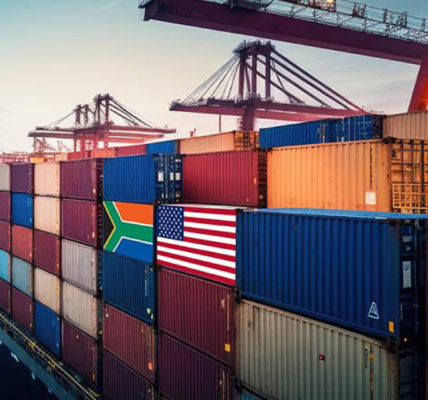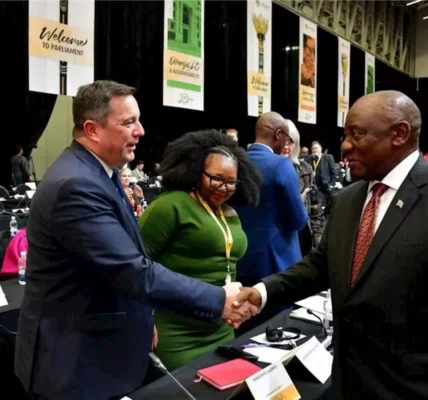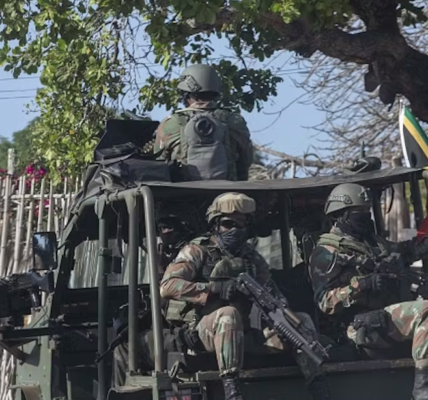Coalition Government May Limit South Africa’s Global Influence – Chris Vandome, Chatham House
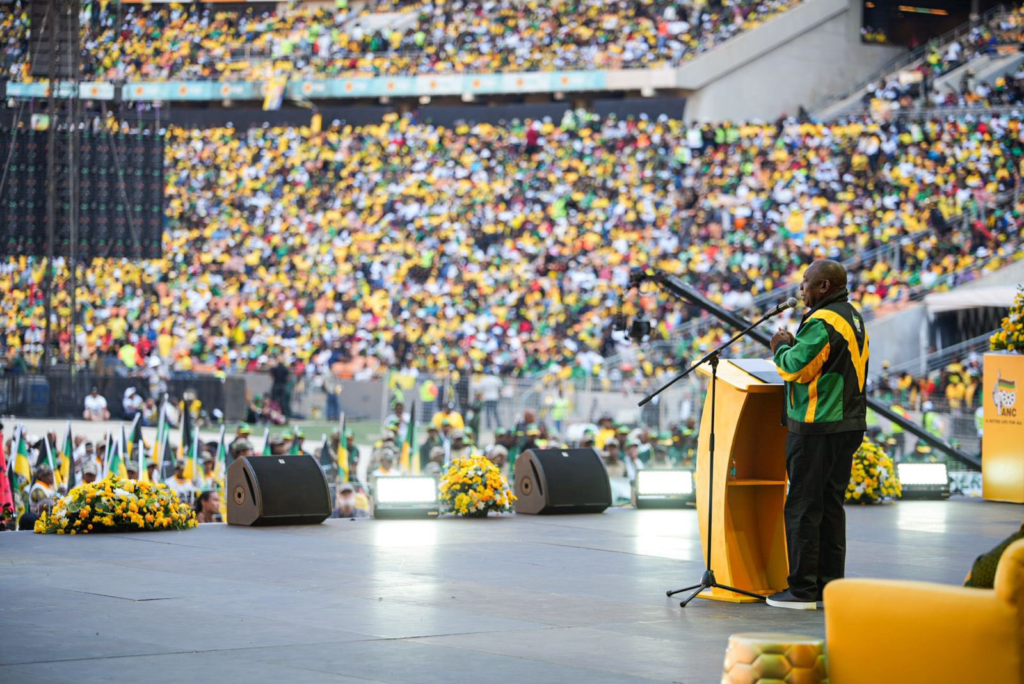
With counting underway in South Africa’s watershed elections, predictions point to the ANC suffering a 15% collapse in support, plunging the country into uncertainty for the next two weeks. The party still remains the dominant force in South Africa; however, it would need the support of another party or political parties to cross the 50% threshold required to stay in government. Final results for the election are expected to be announced on Sunday.
Former President Jacob Zuma, who was a wrecking ball within the ANC and hollowed out the country’s state-owned enterprises including Eskom proved to be the man who also dealt significant blows to the ANC as they haemorrhaged support to his Umkhonto we Sizwe Party (MKP). A senior researcher at the Africa desk of Chatham House, the esteemed London think-tank, told NSN that the ANC, in a coalition government, is likely to become very inward-looking. Chris Vandome said that the ANC and President Ramaphosa’s ability to project influence in the South African region or on the world stage is going to diminish quite significantly.
Edited excerpts from the interview:
Informal conversations around coalitions have started
In the build up to the election, we had a lot of polling suggesting that the ANC were going to perform poorly, with some projections indicating significant losses. While it was somewhat expected, actually witnessing it unfold feels like a reality check. Let’s take a closer look at the numbers: the CSIR predicts 42%, while ENCA estimates around 45%. Other sources fall somewhere in between. Regardless, it’s a substantial drop-off.
This shift matters because it impacts the ANC’s ability to secure a majority. To vote for parliament and elect a president in two weeks, they’ll need those crucial numbers. As we watch the results come in, it’s no longer a hypothetical scenario; it’s happening in real-time. The informal conversations between parties, which were mere speculation before Wednesday, are now essential as they navigate potential coalitions and shared issues.
The re-emergence of Jacob Zuma mobilising Zulu-speakers
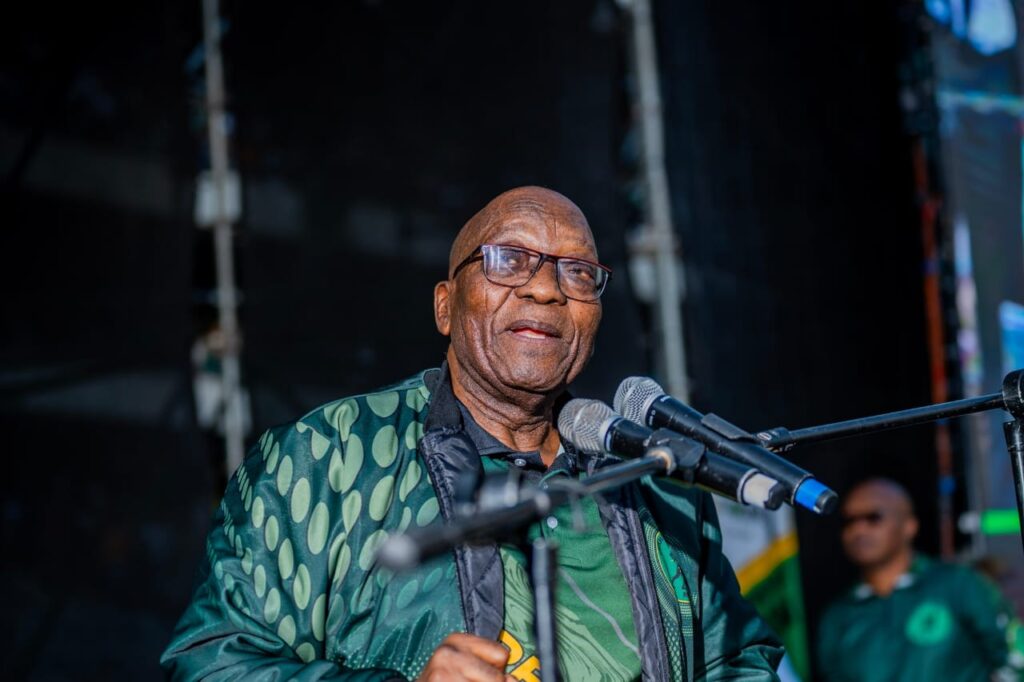
What he’s been able to do is mobilise Zulu-speaking voters in a way that even the Inkatha Freedom Party (IFP), an ethno-nationalist Zulu party, had never achieved. This has been a significant shock. Before this election, the narrative around Zuma suggested that a few months ago, there was a massive wave of support.
People were saying, ‘Look at what’s on the horizon!’. However, as we got closer to the election, it seemed that some of that momentum was waning. Analysts debated whether Zuma’s ability to play the victim narrative—painting himself as one of the people fighting against a system stacked against them—would translate into actual votes. Could he convert sympathy into ballots cast for the ANC? Now, as the results come in, it appears that they have indeed managed to do so. However, we should note that some of the early results from KwaZulu-Natal come from areas where MK (Umkhonto we Sizwe) had stronger support and effective individual mobilisers on the ground.
I think we need to wait and see for the final result, but certainly, in the interim, that’s the big talking point. You know, look at what Jacob Zuma’s been able to do. However, I think he’s also put a dent into the EFF as well. The EFF would have been hoping to capitalise a lot more on some of the anti-Ramaphosa and anti-ANC sentiment.
This leaves the EFF in a situation where if we see a continuation of the current figures, it looks like they will plateau in an area where they’ve been before, rather than significantly boosting support and becoming one of the bigger parties.
The Democratic Alliance holding onto Western Province, pushes for a centrist coalition
The DA is going to hold on to the Western Cape. Again, these are very early numbers, and we haven’t seen the big metros come through yet. However, it appears that the DA might even do a little bit better than some are expecting. Many people were saying that they might not achieve what they got in 2019, but it looks like they might actually surpass their 2019 performance. This continues the trend of the DA being able to gain support outside of the Western Cape. Over the last five to ten years, the party has actively tried to grow its base beyond its traditional core within the Western Cape.
It looks like we’re going to see a push on that centrist line—saying, ‘Look, we’re the party that, if you align with us, can quell the storm in international markets.’ The recent volatility in the rand over the last couple of days due to uncertainty has been significant. Now, the DA is stepping in to emphasise its role in maintaining fiscal spending caps and promoting a mature economic policy.
They’ll be the ones saying, ‘Together, we can boost the economy and navigate the difficult times South Africa faces.’ However, whether this message will resonate across the entire ANC remains uncertain. Brokering such a deal in the complex political landscape won’t be easy.
Markets spooked by possible ANC coalition with leftist parties
A couple of weeks ago, I was in London, talking to people, and that’s the question that everybody had. This so-called ‘tail-end risk’—a term often used in the banking sector—is now on everyone’s lips regarding the EFF’s potential coalition.
If that’s the direction things go, the ANC would need to emphasise continuity and consistency. They should assert that they remain the biggest party by a significant margin. Currently, it appears they could be 20 percentage points ahead of the next largest party, receiving more than four times the votes of the EFF. The ANC must convey that their continued power is about both continuity and embracing new voices.
To address investor concerns, the ANC should establish a clear policy framework. While coalition discussions are underway, safeguards are crucial. The EFF manifesto contains elements that investors may find concerning—such as nationalisation of mines, banks, and strategic industries. The definition of ‘strategic’ remains open to interpretation, adding to the uncertainty.
International investors concerned about energy policy, alignment with Russia in its foreign policy
There’s also a policy on energy where there’s an open and strong alignment with Russia in its foreign policy. Additionally, they’re open to a nuclear deal with Russia. For Western investors, this alignment is still very much seen as a corruption trap. Consequently, it will make it very difficult for some of these Western investors to justify to their boards why they’re investing in South Africa.
Furthermore, this alignment will undoubtedly increase paperwork and administrative complexities. International investors in South Africa may find themselves inadvertently exposed to Russian businesses or Russian-sanctioned companies. It’s a situation that adds significant complications.
So, despite the big political force coupling with a much smaller one, there’s widespread concern due to the high level of uncertainty.
South Africa’s focus could turn inwards
- Ability to project itself regionally and globally may diminish: A firmer stance on where South Africa stands geopolitically is needed: I believe that South Africa plays a significant role in international relations. However, it needs to take itself more seriously at times and recognise that people are watching. Consistency is crucial, regardless of the path it chooses. South Africa must work hard to present itself as a consistent actor. Regardless of the specific policy direction, South Africa should clearly define its stance. This way, the international community has something to engage with and understand. Given the likelihood of coalition governments, South Africa’s ability to project itself regionally and globally may diminish.
- Less assertiveness expected in BRICS: We must acknowledge that during the first term of Ramaphosa, there were both successes and misses. Ramaphosa played a crucial role in the African initiative for peace in Ukraine. While Western partners may have desired a stronger stance from South Africa regarding sovereignty and territorial integrity, the historical context of South Africa’s liberation support explains its position. South Africa’s involvement in hosting BRICS last year was a point of pride. Now, as BRICS evolves, a coalition government might continue this role, albeit with less assertiveness and a shift in priorities.
- Less of a voice on the international stage: South Africa, its political environment is very politicised, but foreign policy issues don’t impact people’s voting. But the Palestine question does because it’s about identity, and identities that are shared between South Africans, Palestinians, and Israelis. There’s a lot of shared emotion there. It’s an area where a lot of South Africans do feel that, they have a moral authority on issues around apartheid or genocide, or these labels that they’re placing on what’s going on there. However, I think that in something like the ICJ case under a future government, you’ll still have these moments where South Africa takes pride in being able to have a voice on the international stage. They just might try it a little bit less often.
- Shrinking of South Africa’s regional role: In 2025, South Africa is going to chair and host the G20, and that’s something it needs to start thinking through. I don’t think there’s been a lot of planning yet. I don’t think it has a clear vision of what it wants to achieve with hosting the G20. I think everyone has been waiting for a new government to come in, get settled, and then decide. There are some areas where it could provide a legitimate platform for important international discussions, particularly around climate change and green financing. That’s something South Africa can push. It has done so before, and it was a big part of the BRICS conversation last year around energy. It’s something South Africa has to think through. It has many coal-fired power stations nearing the end of their life, and it needs to attract international support.
Will President Ramaphosa hold on?
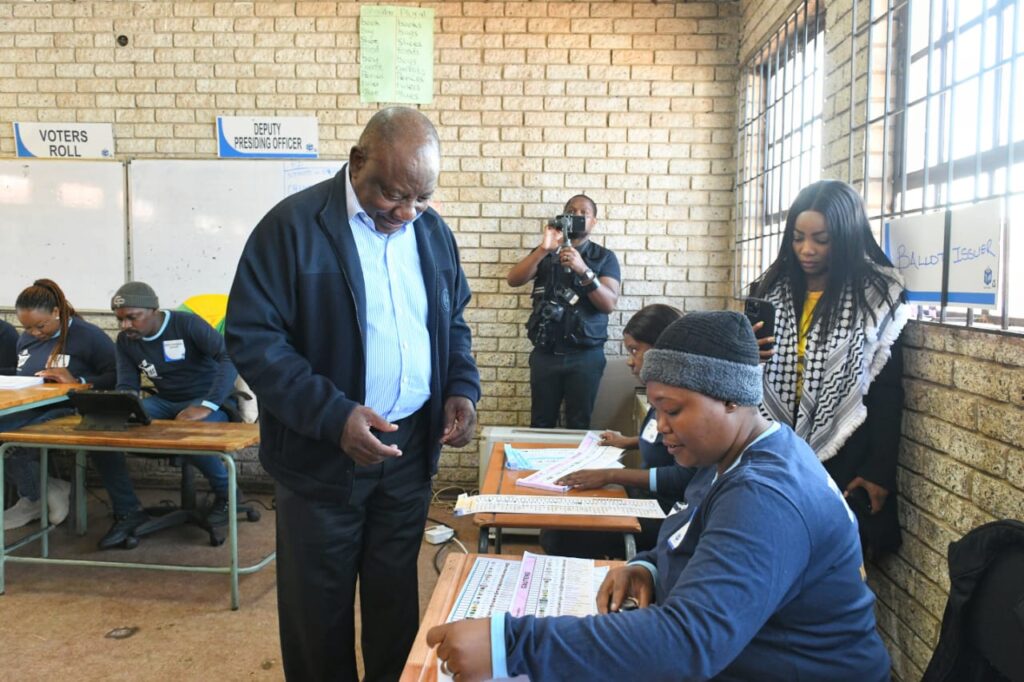
It is very hard to remove a president of the ANC. They did it to Mbeki, and it was very, very difficult.
The power that you have in that position is very significant, and Ramaphosa is legitimately the president of the party and the country. He has backing within the top seven and the NEC, the National Executive Committee, so within the party structures, there is support for President Ramaphosa. Of course, the damaging election result is going to bring some of that into question, but up until this point, there has been support for Ramaphosa within those upper parts of the party.
The ANC, compared to other national liberation movements in the region, is very strong on internal democracy. They really do stand by their decisions. Even when there was a split over the Zuma presidency, those who were anti-Zuma would still stand by the party line in votes of no confidence in Parliament.
This is a party that is culturally sticky, pro-democracy, and very pro-process. They like processes and adherence to those processes. So even under Ramaphosa, there were various rumours that they were going to try and move against him and unseat him at the next meeting. But that never happened, and he retained his position. So I think it’s really up to Ramaphosa. The most likely way he would no longer be president would be if he stepped down. We’ve seen attempts before where he perhaps wanted to step down, and those around him at the top have said, oh, no, you don’t. We need you there. To some extent, the party didn’t let him then, and they might not let him now.
Clearly, there’s a lot of rumour and speculation. This is a bad electoral performance for the ANC, but these two things combined don’t necessarily lead to the simple conclusion that he would go. It would take an awful lot for that to happen, in my view.
So, the most likely, most probable scenario is that, at least in the short to midterm, we continue with a Ramaphosa presidency, but probably with a lot of thinking going into succession and his own thinking around, well, if this is the situation I’m now in, perhaps the last thing I can control is who the coalition partner is and also how I preside over my succession. How do I influence who comes after me? So we’re going to enter into that phase now.


